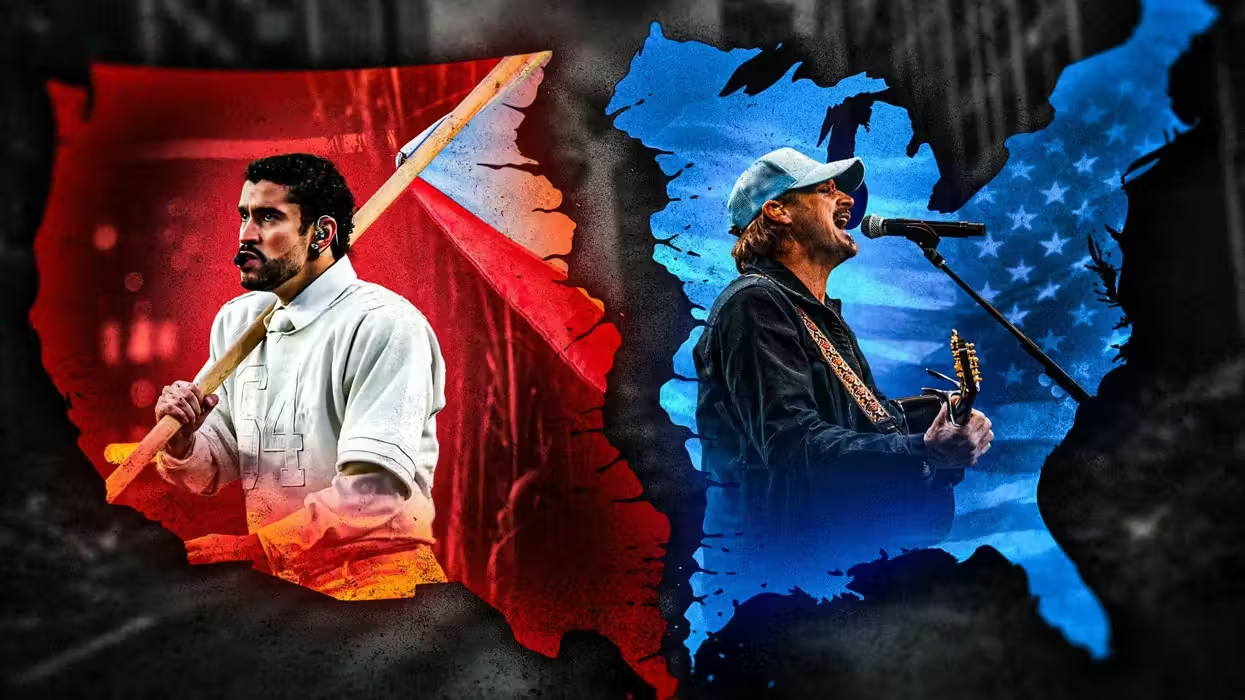
© 2026 Blaze Media LLC. All rights reserved.
 In this photo taken Sunday, Sept. 23, 2012, masked Somali pirate Hassan stands near a Taiwanese fishing vessel that washed up on shore after the pirates were paid a ransom and released the crew, in the once-bustling pirate den of Hobyo, Somalia. (File, AP Photo/Farah Abdi Warsameh)
In this photo taken Sunday, Sept. 23, 2012, masked Somali pirate Hassan stands near a Taiwanese fishing vessel that washed up on shore after the pirates were paid a ransom and released the crew, in the once-bustling pirate den of Hobyo, Somalia. (File, AP Photo/Farah Abdi Warsameh)
Militant groups in the Sahel want kidnapping victims for ransom, or South American cocaine for smuggling, but Gulf of Guinea pirates just want oil.
Western oil and gas companies operating in North and West Africa should be on high alert because their personnel just became much more valuable kidnapping victims whose ransoms will have gone up since the French intervention in Mali.
This is how it works with militant organized crime groups on land, across the Sahel, but on the high seas, things work differently. Pirates in the Gulf of Guinea are no longer trading in people, they’re trading in oil.
Here’s what’s happened: A regional and Western security response has forced pirates to rethink their strategy, and they have repeatedly demonstrated that they are capable of moving with the times, so to speak.
In geographical terms, boosted security hasn’t stymied piracy; it’s only shifted it. Nigeria’s efforts to thwart piracy have resulted in a shift of attacks further east into the Gulf of Guinea, off the coast of Ghana and Cote d’Ivoire, for instance. Before that, increased security off the Somali coast shifted things to West African coastal venues. The Indian Ocean remains a pirates’ playground and their capabilities have metamorphosed along with improvements in security.
“Mother ships” give them more geographical reach and mobility so they no longer need to return to a base on shore during a hijacking operation. The further navies push them from the coast, the more adept the pirates become at launching attacks from further into the Indian Ocean.
Private vessels have also adopted better (very expensive) security measures, which include armed personnel.
So too has the pirates agenda changed from one of kidnapping crew or ships for ransom to one in which they hijack the vessel, hold the crew hostage while they unload the oil cargo and then release it.
Here’s one more thing to consider: The number of hijackings has actual decreased over the past several years—a situation largely attributed to ramped up security in Somalia. (For 2012 there were 27 reported pirate attacks of Nigeria’s coast—higher than the past two years but also 50% lower than in 2007). But the damage is the same, if not worse. This is another metamorphosis.
Writing for Maritime-executive.com, James Bridger of Delex Systems, Inc. notes: “Heightened security in the Nigerian littoral appears to have had a Darwinian effect on maritime criminals, as more sophisticated and politically connected syndicates have thrived at the relative expense of opportunistic ‘smash and grab’ pirates.”
What Bridger is saying is that while there may be a decline in the actual number of pirate attacks today, the pirates themselves are getting better and what they do and the entire modus operandi is much more sophisticated.
Now that the pirates are stealing oil rather than kidnapping people for ransom, the question is “where does this oil go?”
It’s a question that requires an uncomfortable examination of collusion.
According to Bridger, “hijacking a product tanker and pilfering vast quantities of fuel over several days requires a high degree of organization and sophistication.”
He points to testimonial evidence that the pirates have very powerful sponsors, including—in Nigeria’s case—government officials and oil industry executives “who provide advance payment and information about the cargo, route and security details of ships that have been targeted.” Getting rid of the oil on the black market requires an organized oil mafia comprised of key insiders who can facilitate such a deal and ensure its storage in illicit depots, most of which are believed to be in Nigeria.
This is now clearly a transnational business that stretches from Nigeria and engulfs Cote d’Ivoire, Benin, Togo, Ghana …
This is what a French ship (Luxembourg-flagged) has experienced recently. The tanker was hijacked last weekend and has now been released and its crew is safe, but this was the third hijacking in as many weeks over Cote d’Ivoire. And the pirates are coming from Nigeria.
Related articles from OilPrice.com:
This report is from Oilprice.com, home of the premium publication Oil & Energy Insider. Oil & Energy Insider gives subscribers an information advantage when investing, trading or doing business in the energy sectors. To find out more on how you can get a legal inside advantage in the energy markets please take a moment to visit: https://oilprice.com/premium
Want to leave a tip?
We answer to you. Help keep our content free of advertisers and big tech censorship by leaving a tip today.
Want to join the conversation?
Already a subscriber?
more stories
Sign up for the Blaze newsletter
By signing up, you agree to our Privacy Policy and Terms of Use, and agree to receive content that may sometimes include advertisements. You may opt out at any time.
Related Content
© 2026 Blaze Media LLC. All rights reserved.
Get the stories that matter most delivered directly to your inbox.
By signing up, you agree to our Privacy Policy and Terms of Use, and agree to receive content that may sometimes include advertisements. You may opt out at any time.






